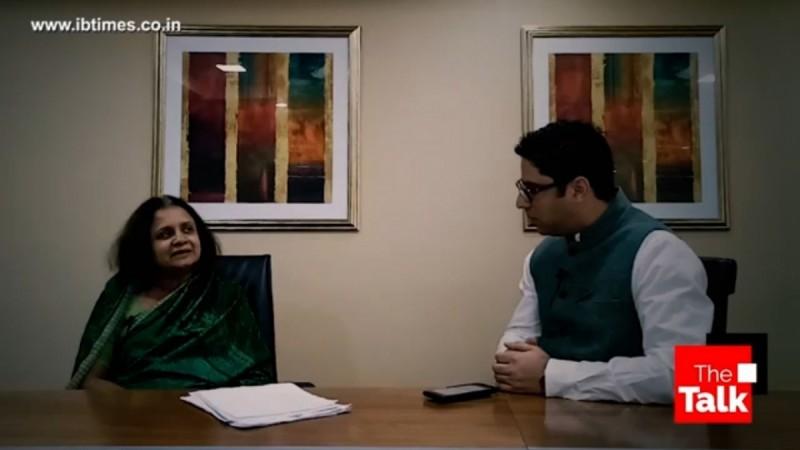Renuka Vishwanathan is a retired IAS officer and was a member of the erstwhile Planning Commission. And now, she is a member of the Aam Aadmi Party (AAP).
Bureaucrats joining politics has never been a new thing, but when asked why she joined the AAP and not any of the other mainstream political parties, she said: "I joined the AAP four years ago. I can trace it to two clear reasons. One was they just got through the elections in 2013, and secondly, when I went to their website I saw every donor had been listed and every rupee accounted for."
Vishwanathan also said she never had any political ambitions after retirement, but as a kid was fascinated by the concept of politics.

In an exclusive interview with Danish Manzoor, Executive Editor, IBTimes India, Vishwanathan spoke about how the AAP and their ambitious projects for the welfare of the people inspired her to join politics.
A political party giving a full account of its donations is something not usually seen in India, and what sealed the deal for Vishwanathan was the way the AAP handled the free water scheme, which she said was executed wisely and within a week, she said.
She also said she was impressed with how the AAP integrated behavioural economics into their plans, which made their water plan successful.
Vishwanathan also said she found members of the AAP were her soulmates. She found she and Kejriwal had a lot in common as she was a strong believer in rules being followed no matter who stood in the way. She said she found Kejriwal was running the party with the same belief.
When asked what plank she plans to campaign on if she's given a chance to contest in the upcoming Assembly elections in Karnataka, she said education. she added that how much she does for it is the way she will mostly be perceived.
She said she has always been involved in a great deal of groundwork, from teaching children in very low-income areas or being on the planning committee of her party. She believes that "the kind of policies you are thinking of have to actually be what the people need."
When asked about her thoughts on the need for the youth to be in politics, Vishwanathan said it is a must, because youngsters are extremely clear with ideas that are outside the box. "The young people have never been shackled by age-old theories and work straight on the problem."
Talking about the Right to Education Act, she said people from lower-income sections of society don't want to send their children to government schools because of the conditions in these schools. Some parents were willing to go out of their way to make sure their kids get a far superior education rather than be at the mercy of government schools, she said.
Watch the video for more.














